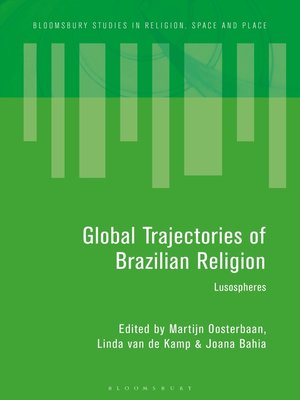Global Trajectories of Brazilian Religion
ebook ∣ Lusospheres · Bloomsbury Studies in Religion, Space and Place
By Martijn Oosterbaan

Sign up to save your library
With an OverDrive account, you can save your favorite libraries for at-a-glance information about availability. Find out more about OverDrive accounts.
Find this title in Libby, the library reading app by OverDrive.



Search for a digital library with this title
Title found at these libraries:
| Library Name | Distance |
|---|---|
| Loading... |
This book explores the proliferation and spread of Brazilian-born religious forms and practices throughout the world. The global diffusion of Brazilian religions provides an excellent lens to understand contemporary religious forms. As the book shows, religious movements as diverse as Santo Daime, Candomblé, Capoeira, John of God, and Brazilian style Pentecostalism and Catholicism, have become immensely popular in many places outside Brazil. This global spread is not merely the result of Brazilian migrants taking their religions abroad, it is also due to global media and to spiritual seekers, travelling to and from Brazil.
Global Trajectories of Brazilian Religion demonstrates that in a dynamic space of historical and cultural production, Brazil is imagined and re-created as an authentic, spiritual, and sensual place that functions as the center for various global religions. To understand the new cross-fertilizations between religion, life-style, tourism and migration, this book introduces the notion of 'Lusospheres', a term that refers to the historical Portuguese colonial reach, yet signals the contemporary modes of cultural interaction in a different geo-political age.
Global Trajectories of Brazilian Religion demonstrates that in a dynamic space of historical and cultural production, Brazil is imagined and re-created as an authentic, spiritual, and sensual place that functions as the center for various global religions. To understand the new cross-fertilizations between religion, life-style, tourism and migration, this book introduces the notion of 'Lusospheres', a term that refers to the historical Portuguese colonial reach, yet signals the contemporary modes of cultural interaction in a different geo-political age.







